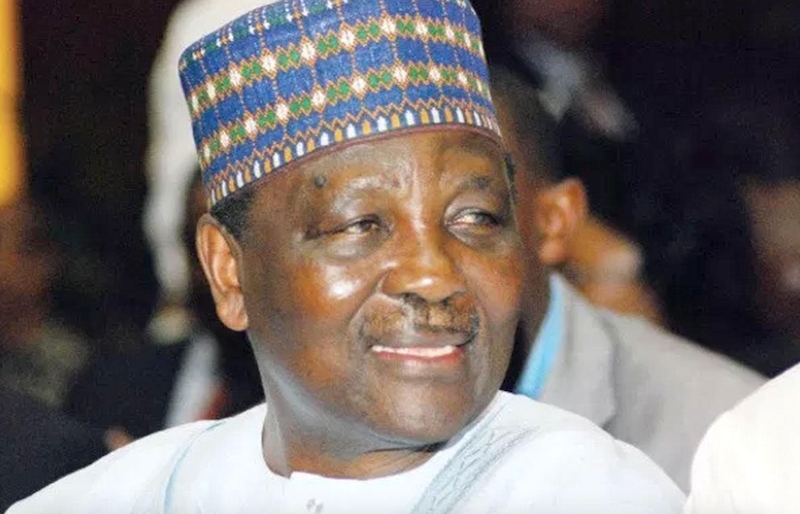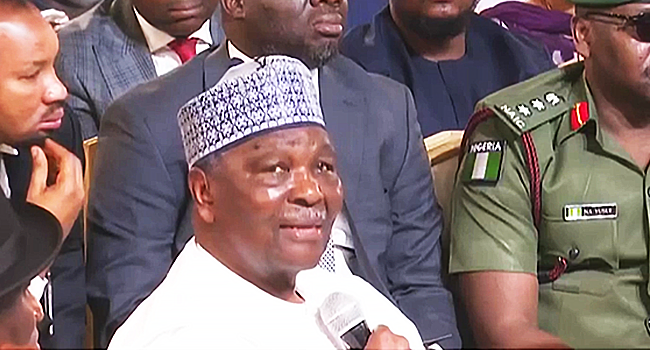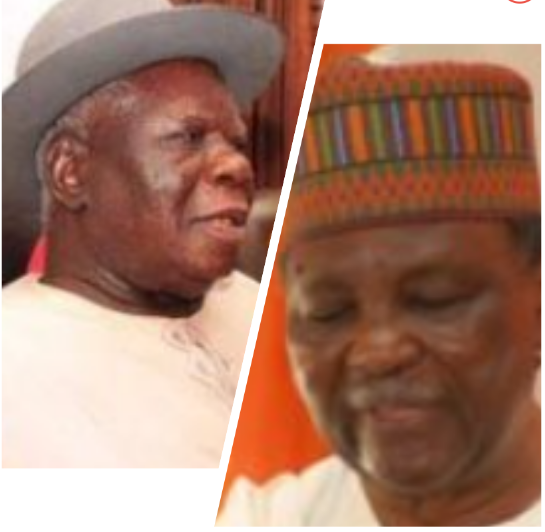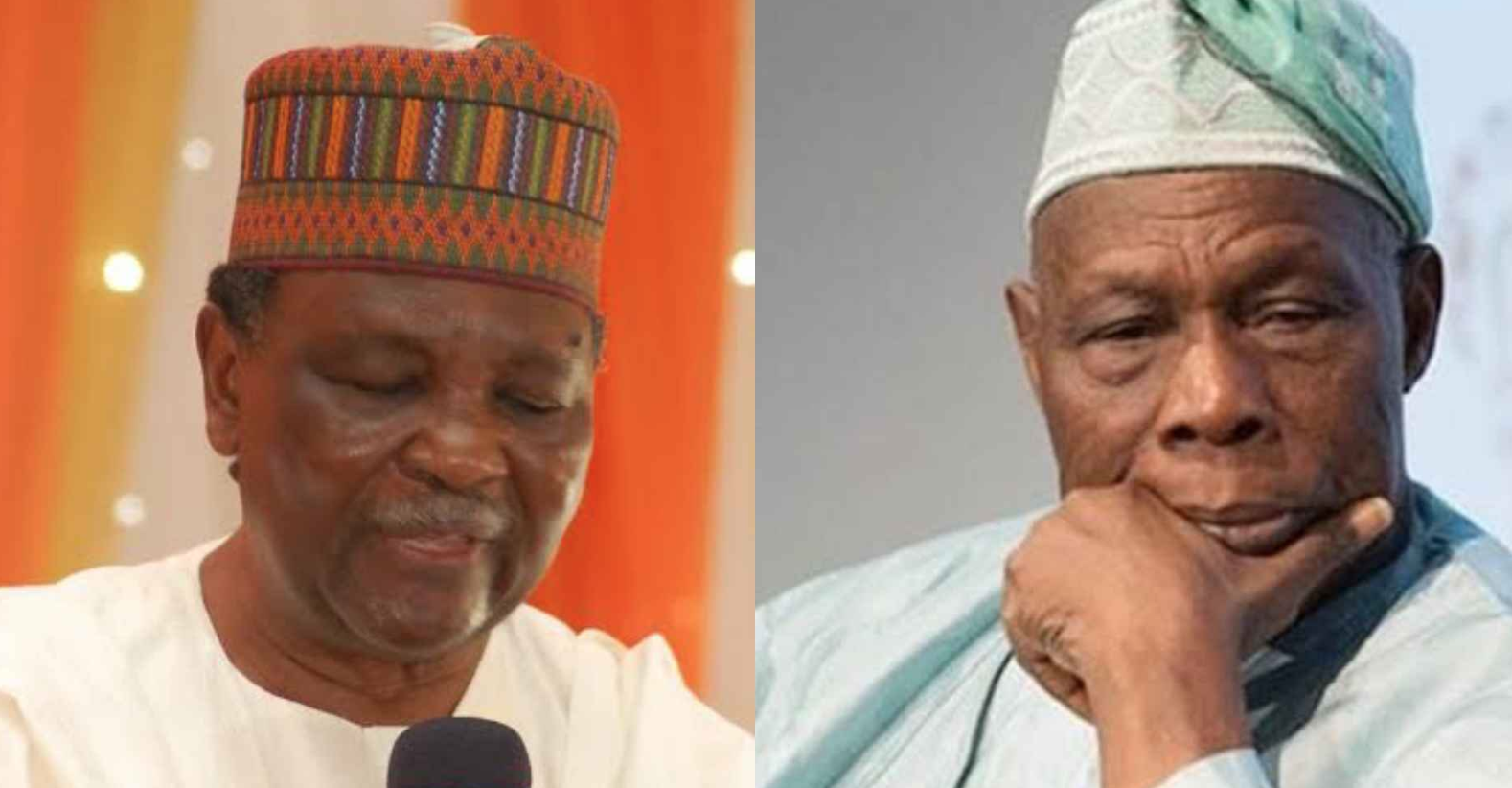Those in search of the human asset to help salvage our country have one major place to look these days: the departure lounge of the international airports. Some of the best minds of the nation are either on their way out of the country to assume leading positions or are returning to their international duty posts in major centres of the world. Hardly any day goes by without an outstanding Nigerian making the headline in some news paper somewhere in the world. Our exceptional citizens are making the news waves with stories of achievements that should make us proud.
Our citizens are being elevated to and celebrated in strategic positions around the world. Some are scoring unusual goals in ground breaking research or scoring the best marks in universities all over the world. Our star footballers and athletes are household names around the world. A select few are occupying cardinal positions in apex global public and private organizations.
Ngozi Okonjo Iweala has held fort at the World Trade Organization (WTO), using the instrument f trade to help redefine the world. Professor Akinwumi Adesina has maintained an enviable lead at the AFDB since his appointment and has continued to lead that bank as a leading global engine of development for Africa. Mr. Adebayo Ogunlesi has, since acquiring the airport, resurrected Britain’s Gatwick Airport into a major global hub. The current Deputy Treasury Secretary of the United States, Mr. Adewale Adeyemo, fondly called “Wally” at the highest levels of the US government is a major force in Washington’s power circles. The examples and instances are multiple and ever expanding.
We can of course not ignore the nuisance of the ugly Nigerians: cyber criminals, scam artists, rough and random street cultists and other ugly Nigerians who also make news headlines that taint our green passport. Every great nation has them in all shades but are are better judged by their brighter shades than by their brackish dregs.
Earlier in the week, yet another significant Nigerian has joined the elongating line up of ambassadors of excellence flying Nigeria’s flag in the places that matter. Kingsley Chiedu Moghalu, former Deputy Governor of Nigeria’s Central Bank and international economics scholar has just been appointed the founding President of the new African leadership University, the African School of Governance (ASG) based in Kigali, Rwanda. The ASG is a tertiary level institution deliberately established by significant African leaders and statesmen to promote the cause of enhancing Africa’s leadership culture at a time of grave challenge.
The ASG comes on stream as a continental training ground for a new generation of leaders especially from among the youth. The institution is target specific; it aims to train and provide leadership human resorces for the entire continent. It is the brainchild of a select group of outstanding African statesmen and world class technocrats who have themselves been shining examples in the transformation of their own countries in the modern world.
The founders are led by Rwanda’s poster kid President, Paul Kagame, Ethiopia’s former Prime Minister, Hallemariam Dessalegn. Others include Mr. Mekhtar Diop, Managing Director of the International Finance Corporation and Senegal’s former Minister of Finance and Economic Cooperation as well as Dr. Donald Kaberuka, former president of the African Development Bank, Professor Hajer Gueldisch , former professor at the University of Carthage, Kishore Mahbubani, Former Dean of the Lee Kuan Yew School of Public Policy are also among the founders and board of the new school.
African School for Governance will offer a broad range of services and programmes directly related to the enhancement of public policy leadership in Africa. For training programs it will offer short term programmes leading to post graduate degrees in public policy. It will also offer short term on –the- job training for African policy and government operatives as well as render services to African governments and public institutions on a continent wide basis. All these activities will be managed and coordinated from the school’s base in Kigali, Rwanda. ASG comes as a fully loaded package of progammes, services and collaborations of a scope and spread that is unprecedented in Africa to date..
The mission and vision of ASG are honed at today’s Africa where a deficit of appropriate public policy leadership summarizes the current crisis of development on the continent. It has come to be acknowledged that the critical deficit in Africa’s development and progress is a certain embarassing paucity of knowledgeable leadership. Most African leaders are politicians who have not undergone much formal education on modern public leadership. The result is that while Africa’s challenges have grown in scope and complexity, the manpower resources to address them at the level of leadership has remained undeveloped. Yet the world cannot wait for Africa to catch up or bridge the yawning knowledge gap that currently separates Africa from the rest of the world. This broad challenge is the definition of Prof. Moghalu’s new assisgnment which makes it both grueling and unique in Africa.
Moghalu comes to his new position very well equipped. With a rich and brilliant academic background in international economics and copious practical experience working with the World Bank and other leading financial institutions around the world. Moghalu has in addition considerable experience working in multilateral institutions like the United Nations where he was mentored by such illustrious diplomats as the late Kofi Annan, former UN Secretary General of the UN.
Thereafter, he was appointed Deputy Governor of Nigeria’s Central Bank where he worked under Lamido Sanusi Lamido, Emir of Kano during the tenure of President Goodluck Jonathan. The Central Bank under Sanusi Lamido Sanusi was essentially a reformist institution. It introduced a number of innovations in Nigeria’s banking sector including the Bank Verification Numbers(BVN) to identify all account holders as part of an anti -graft measure to reduce abuses in the Nigerian banking system.
After his tenure as Deputy Governor of the Central Bank of Nigeria, Moghalu was appointed professor at the Fletcher School of Law and Diplomacy, Tufts University in 2015. s.
In the 2019 presidential contest, he ran unsuccessfully as the presidential candidate of the Young Peoples Party (YPP). His manifesto was typically idealistic and a bit academic. After the political adventure, he returned once again to the world of academics. In 20021, he was appointed Visiting Fellow by Oxford University.
In the 2023 contest, he made yet another unsuccessful attempt at the presidency with little success. This second time, he fared worse than he did in the first attempt at partisan politics. It was an experience where he came face to face with the murkiness of Nigerian politics. He encountered subterfuge, corruption and nastiness as we have come to know them as trademarks of Nigerian politics. He did not need any further disincentives to know that it was time to bow out of partisan politics. He had no alternative than to return to his forte of academia, research and consulting especially in especially in the areas of international finance and economics. He was back to his Washington based consultancy from where he was appointed the President of ASG.
Moghalu took to his political journey a predictable idealistic obsession to make Nigeria work for the people. His vision was to work towards a functional state with institutions that work efficiently in the service of the people. His informing national aspiration was a medium income and medium power nation that would stand shoulder to shoulder with its peers in the shortest possible time. He wanted to harness and deploy the best energies of the nation to this end. In his mind, he was the candidate of the youth. But he was to discover differently to his utter chagrin.
He took to his brief political foray his energy and habitual dedication to mission. He travelled the nation, met and mixed with the political high and mighty. He touched base with the shakers and movers of political Nigeria , paid homage to the main shapers of national political opinion. Understandably, he was accepted and endorsed by all those he paid homage to. Quite significantly, he was endorsed by Nobel laureate Wole Soyhinka who used to wield considerable political heft at the levelof opnion and ideas.
His mission was easy since he carried no major political baggage. His politics was one of ideas and values. No one could pin him down to the fixed verities of Nigeria’s sectional and hegemonic politics. Though a man of Igbo descent, his politics was essentially a nationalistic one predicated mostly on the evolution of a modern institution- based Nigerian state that would work for its citizens and compete with its peers in the new modern world. He belongs to a post war less ethnocentric Nigeria which equipped him with a more nationalistic sense of the Nigerian nation.
Here then is a man with a rounded background in academics, public service, a bit of politics and international affairs. At a personal level, he is laser focused and avidly result oriented. Therefor, Moghalu brings to his new position as President of ASG a rich background that should enrich his career and glorify the objectives of the new institution. One quality that marks out Prof. Moghalu for his new role is his fervent commitment to African modernity. For him, a modern and progressive Africa is an urgent possibility that can no longer wait.
Our eyes are on Kigali where one of the jewels of Nigeria’s intellectual property reservoir is now on loan to the rest of Africa.
Peter Obi and the Yakubu Gowon conundrum
The social media and the streets found a bit of excitement in the past fortnight. The 90th birthday events of Nigeria’s war time leader, General Yakubu Gowon, provided an opening for the older generation of Nigerians to reflect on aspects of Nigerian history especially the civil war. Gowon’s birthday provided an avenue for interactions among historical personages alive , young and ageing. It was especially an opportunity for younger Nigerians to learn snippets of national history.
Understandably, the politics of the moment was not immune from that past. Mr. Peter Obi, easily the most visible image and audible voice of what may be described as the present Nigerian political opposition, felt a duty to join the long queue of Nigerian political heavies and significant others to salute General Gowon. As a politician, Obi could not but greet Gowon whose political symbolism remains strong. By the nature of his historical being, Gowon can only be greeted in the language of politics. Peter Obi knows that too well and his congratulatory tweet was in line.
Fire from the pit of hell was let loose. Mr. Obi’s swarm of social media acolytes, perhaps for the first time, disagreed with their icon and said so. In the view of most of them, General Gowon remains a villain who presided over a war time killing machine that claimed over 3 million Nigerians in the civil war of 1967-70. He does not therefore qualify to be greeted by Obi.
Most of those on social media today have come to see Mr. Peter Obi as a symbol of a new, more innocent Nigeria who needs to keep his distance from the rotten pillars of old Nigeria. Running through the bulk of the social media posts that greeted Obi’s Gowon tweet is a stubborn sense of hurt especially among the youth of South Eastern extraction.
This unexpected outrage forced Mr. Obi into the difficulty of ‘explaining’ himself using mostly moral grounds to justify the Gowon tribute. As a Christian, he felt a compulsion to forgive “an enemy” even in the context of national politics. Moreover, as a politician, he cannot afford to harbor ill will for longer than necessary.
Some followers have forgiven Obi. Others have shown understanding of his position. The more ethnocentric few have swallowed hard, insisting that Gowon remains a war ‘criminal’ who is undeserving of forgiveness by those who feel the hurt of the civil war most. The most interesting thing about this exchange is that we are over 60 years from the end of the civil war and the majority of those who are bitter on the social media were hardly born even a decade after the end of the war. Yet the bitterness endures.
Peter Obi’s mini cyber travail over the Yakubu Gowon birthday tweet has exposed certain problems in Nigeria’s current political thinking. In a political culture rooted in regionalism and ethnocentrism, politicians and their followers seem to have a problem defining themselves in plain national colours. Peter Obi who was hardly ten years old when the war ended. Yet he is having difficulty defining himself free from the labels of that hostility. Though his political identity is rooted in the new post-1970 federalist Nigeria, many of his followers would want him to identify himself primarily as an Igbo pro-Biafran politician. That would be futile.
On the contrary, Mr. Obi’s aspiration is for the leadership of a united Nigeria. He is not traversing the length and bread of Nigeria seeking to avenge the Nigerian civil war or the millions of Igbos killed in that war. His mission is not one of ethnic revenge. Rather, I see him as an apostle of new Nigeria, freed at last from the contagion of ethnicity and regionalism. Obi is, in my view, an apostle of a new modern, detribalized Nigeria led by the youth, a nation state that works for all Nigerians in a truly democratic context.
As a serious apprentice statesman, Peter Obi needs to see more in Gowon than the blood letting in the war years. Gowon means the state structure. He means the National Youth Service Corp, the Unity Schools, driving your car on the right hand side of theroad like the rest of West Africa and the establishment of ECOWAS. These items f nation building cannot be reduced to simplistic and emotional binary categories of hero and villain or saint and sinner.
Even with their individual failings as mortals, leading national figures like Emeka Ojukwu, Yakubu Gowon and Olusegun Obasanjo tried, through visits and photo opportunities, to reach across the divides of war to send the message of peace, forgiveness and reconciliation.
Given the ethnic basis of our political culture, hardly anyone emerges on the national political scene without carrying the baggage of an originating ethnicity (the state of origin syndrome!). There may be nothing wrong with that. Every politics is primarily local and ethnic in the end. What matters however is where the politician in question pitches the beacons of his/her consciousness. The politician who places the imperatives of the nation over and above those of his ethnicity is the truly national leader. The opposite is the definition of the ethnic politician in national political costume. We have them in abundance.
And in any event, the national political leader who does not feel the historic wounds of his own people is counterfeit. Still, the aspirant to national leadership who wears the historic injury of his people as a signpost on his political forehead should not be trusted with the fate of a multi ethnic nation like Nigeria.
The Peter Obi and Gowon conundrum raises larger questions of political leadership typology. Specifically, on Gowon, the question is a complex one: Can one man be both hero and villain simultaneously? To the advocates of a united Nigeria, General Gowon as the leader of the Nigerian war of unification, was an undisputable hero who won the war.
But for the predominantly Igbo population of defunct Biafra, Gowon was and remains an unmitigated villain. They hold him responsible for the collective evil of the war and the massive loss of lives. The passage of time and all the political whitewash of peace, reconciliation and national unity cannot wipe away the hurt of war and the loss of kith and kin.




